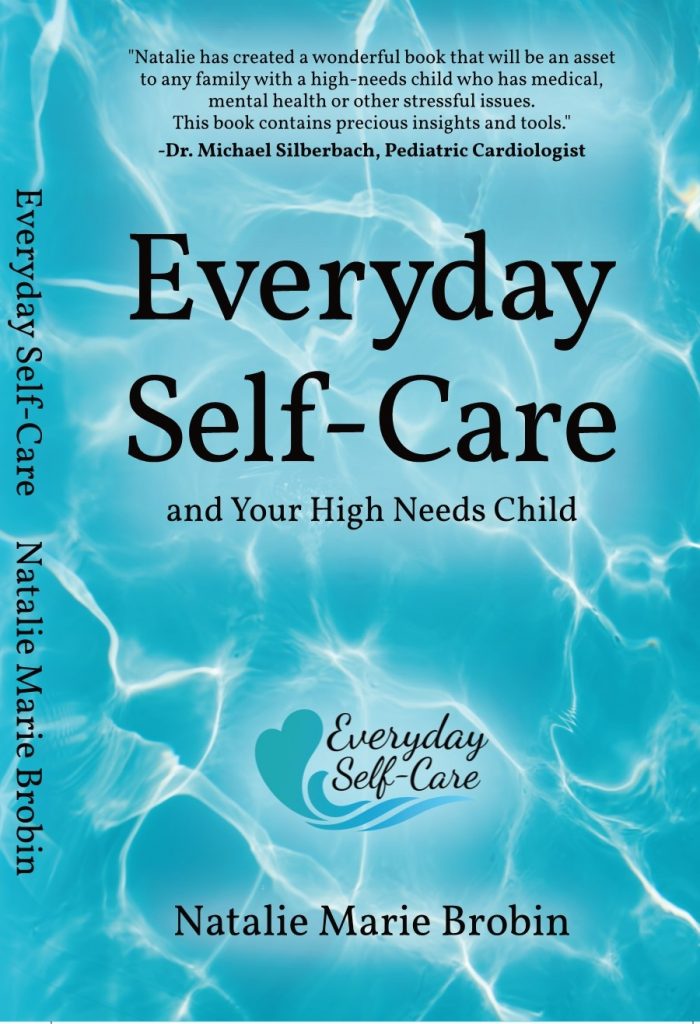By Natalie Brobin
Keep it simple. Breathe.
One of the best things we can do for self-care is to breathe. It sounds so simple, doesn’t it? However, during our busy day, we may not notice that our breathing is off. After all, we breathe normally whether we focus on it or not, right? Wrong. In our stressful and anxiety-ridden lives, our breathing contributes to more stress.
What are some abnormal ways we breathe?
- Shallow breathing through our chests
- Breath-holding (especially in stressful situations)
- Over breathing (i.e. hyperventilating) and not getting in enough air
- Being too aware of your breathing which makes you more anxious
Breathing in the ways I’ve mentioned above means we’re not getting enough oxygen to feed our cells, organs, muscles and more. Not breathing correctly can really mess with your central nervous system. Less oxygen means less energy is produced to keep your body functioning at its highest level. I have found that breathwork is number one in my self-care toolbox.
During yoga teacher training and yoga retreats I’ve attended; I have learned some of the keys to breathing correctly through practice.
- Breathe through your nose, it filters the air
- Breathe with your diaphragm vs. through your chest, belly breathing
- Breathe relaxed, soften your belly
Deep breathing is especially important. Why? Inhaling deep breaths fill your body with the oxygen needed to fuel your body. The majority of us take shallow breaths (breathing through our chests) all day. By being in the present moment and hopefully clearing your mind, it is easier to focus on your breath.
How can deep breathing affect your body?
- Decreases your heart rate
- Lowers your blood pressure
- Slows your breathing down
Here are two examples of breathing exercises to calm and centre your mind.
Six-Count Belly Breaths
This practice slows down your heart rate and calms your nervous system. Put one hand on your stomach and the other on your diaphragm. Picture your torso as a glass. When you breathe in, you are going to fill that glass from the bottom to the top, from your stomach up to your shoulders. As you breathe out, you are going to empty the glass slowly from your shoulders down. I do this to a six-count, but you can do what works for you as long as it is a deep breath for you. Do this for five minutes.
Alternate Nostril Breathing
This practice balances the left and right sides of the brain. Use a four to six-count on each inhale and exhale. Use the thumb of the right hand to close the right nostril and inhale through the left side. Then, use the index finger of the right hand to close the left nostril, exhale through the right. Next, inhale right and exhale left. Continue for 10 rounds. You are exhaling and inhaling on one side and then moving to the other side to exhale and inhale.
Breathing made simple. Just do it.
How do you prioritise your own health when you’re the parent of a high-needs child?
Natalie Brobin’s life turned upside down when she found herself struggling to care for a daughter with a rare chromosomal disorder called Turner Syndrome, which can cause heart defects and delayed growth, among other health issues, particularly in girls. Struggling to prioritise her daughter’s health amidst the everyday madness of raising two other children and thus juggling carpools, diving practices, family commitments and neighbourhood get-togethers, Brobin eventually had a nervous breakdown after a dear friend’s death by suicide that left her determined to find another way to live. After rediscovering herself through a combination of therapy, yoga, advocacy work and writing, Brobin discovered the path to self-care for any parent of a special needs child (or even a typical one). Everyday Self-Care and Your High Needs Child provides concrete ideas on how to reduce stress through breathwork, meditation, nutrition, healthy sleep, therapy, laughter and positive outlets for stress.
Written in concise chapters, and drawing from the experience of other parents as well as the input of doctors, this book is the informed, experienced life coach in your pocket that every parent of a special needs child can use.
About the author
Natalie Brobin who has a Journalism degree writes about parenting, trauma, loss, grief and life. A registered yoga instructor and a Yoga Recovery 2.0 Coach, she’s been published in The Mighty, Thrive Global and Light Hustler. She’s also been featured in and on multiple media outlets for her advocacy on behalf of Turner Syndrome—the rare genetic disorder her daughter has. A dedicated volunteer for the Turner Syndrome Society of the United States, Brobin is currently working on a book called Everyday Self Care During Grief. Her blogs can be found at www.everydayself-care.com. She recently moved to California and enjoys daily walks on the beach.





